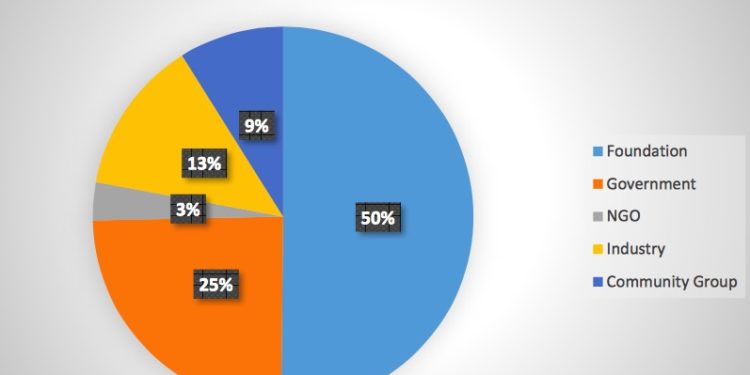Following an attack on his activities and the funding behind them, professor Ray Hilborn has deftly responded by thanking Greenpeace for raising awareness of the work he and his collaborators do and the results they have achieved.
‘I would like to thank Greenpeace for offering this opportunity to advertise our research and its result,’ he stated, and has made public his funding sources in a simple graphic.
Greenpeace’s efforts to smear Professor Hilborn by arguing that his work is industry-funded, damaging its credibility are clearly carefully timed to coincide with the International Fisheries Science Prize he is due to receive in two weeks at the World Fisheries Congress. Held every four years, the prize is awarded by fisheries science organisations from countries that include the USA, Australia and Japan. Ray Hilborn has already stated that in his plenary address he plans to show where overfishing is declining or has already been eliminated, as well as identifying areas such as the Mediterranean and Asia where it continues to be a serious issue.
‘Greenpeace is unable to attack the science I and my collaborators do; science that threatens their repeated assertions that overfishing is universal and that the oceans are being emptied,’ he stated.
‘Instead of focusing on the science, Greenpeace has alleged that I failed to disclose large amounts of money from the fishing industry and other corporate interests,’ he said, commenting that the essential issue here is of conflict of interest.
‘Greenpeace seems to believe that industry funding is tantamount to a conflict of interest, regardless of its purpose. Thus, any time I discuss fisheries I would need to disclose each and every grant or contract I have ever received as a conflict of interest. Taking that approach I would also have to disclose funding from all of the environmental NGOs that have also helped to fund our research and education efforts, including the Society for Conservation Biology, the Sierra Club Legal Defense Fund, the Natural Resources Defense Council and the Environmental Defense Fund. Perhaps I would also need to disclose the numerous private foundations and government agencies that have funded our work every time I discuss fisheries. The list of funders would be as long as some of the papers. I, like all reputable scientists, take conflict of interest seriously. This is one reason we acknowledge all funders of the research work discussed in each paper at the end of the document.’
He stated that the top three ‘industry’ sources of funding that have contributed to supporting his work are community groups in small Alaskan communities where fishing is the source of survival.
‘These are not big industrial interests but small communities. Fisheries issues are contentious because natural resources are limited, directly affect the lives of many, and everybody has, or wants, a stake. My belief is that all voices need to be heard, and all stakeholders need to be at the table,’ Ray Hilborn said.
The full response to the Greenpeace allegations can be read here.









